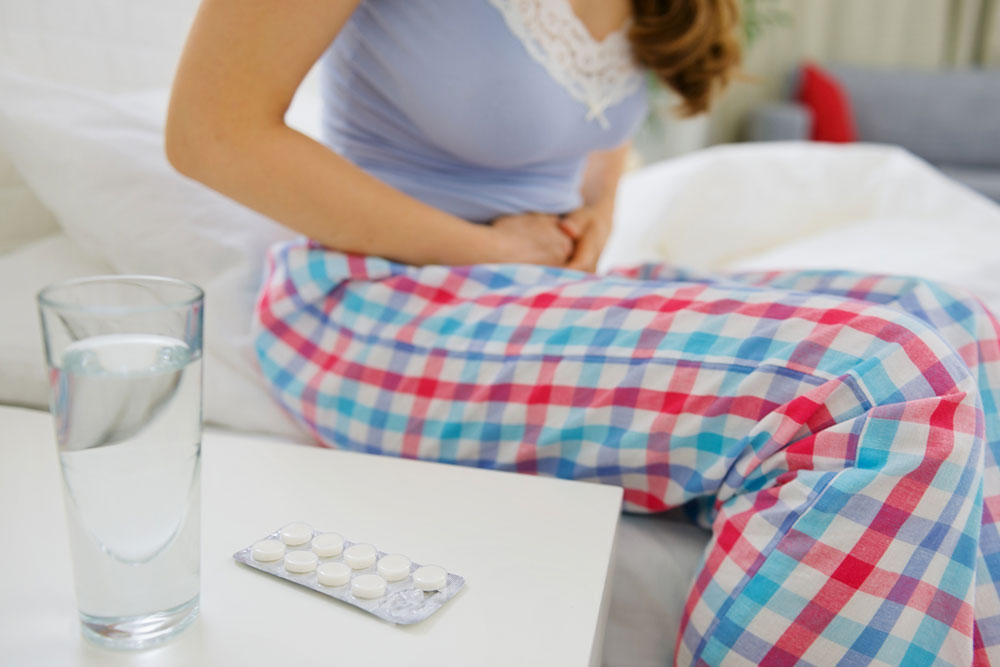7 mistakes that can worsen period cramps

Many women experience period pain (dysmenorrhea), which develops because of contractions in the uterine muscles during menstruation. The discomfort can also be accompanied by other symptoms such as mood swings, fatigue, bloating, and headaches. While there are a few ways to manage and reduce the pain, some mistakes can worsen the discomfort and make menstruation more painful. So, when experiencing excessive period cramps, one should avoid making the following errors:
1. Not getting enough sleep
Sleep is crucial, especially while menstruating. Ample rest can help the body deal with cramps and also reduce mood swings, discomfort, and tiredness. On the other hand, not getting enough sleep can worsen cramping.
2. Skipping meals
It may seem difficult to eat well during periods, but it is incredibly important. Skipping meals could lead to a drop in energy and blood sugar levels, increasing the intensity of cramps and causing fatigue. One should try to eat balanced meals with nutrient-rich foods such as fruits, leafy vegetables, lean proteins, whole grains, and nuts.
3. Ignoring symptoms
Unfortunately, many people end up ignoring or underplaying their period pain. Because of this, they do not seek professional help, which reduces the chance of a formal diagnosis if dealing with a related problem. Women experiencing severe, disruptive, or debilitating pain for extended periods must consult their doctor and find appropriate management options.
4. Forgetting to drink water
Dehydration during periods can worsen cramps and even cause dehydration headaches. It can also increase the risk of water retention and bloating, which adds to the discomfort. One can avoid this by drinking plenty of fluids and staying hydrated throughout the day.
5. Excessive salt intake
Eating excessively salty foods increases the risk of water retention, which can worsen bloating and discomfort during periods. So, it is best to avoid adding too much salt to food if one is experiencing heavy period cramping.
6. Avoiding exercise
Many women tend to feel lethargic or fatigued around their periods, which impacts their exercise routines. Avoiding exercise during this time can, however, impact their mood and energy levels. While heavy-intensity exercise is not ideal while menstruating, light movement and stretching may help elevate mood, alleviate PMS symptoms, and reduce period cramps.
7. High caffeine intake
Caffeine can make cramps and other PMS symptoms worse by causing water retention, bloating, and increasing headaches. Some beverages, such as coffee, may also lead to digestive problems.






